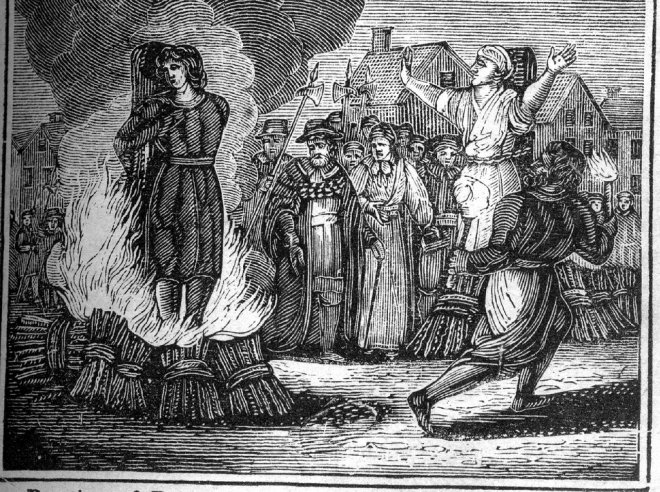
Once more in the world, women have been accused of witchcraft and punished brutally. The latest incident occurred in Madhupur village in India's eastern state of Odisha. A group of women, accused of being witches, were tied around a tree and thrashed with branches by villagers.
A group of spectators gathered around to watch as the helpless women were beaten in broad daylight. The husbands of the 'witches' were also not spared. Police became aware of the incident only after they saw the video and the victims reported it to the local force. An investigation into the matter has been launched.
Incidentally, a strange factor has been noticed after video footage of the attack emerged online. The women were primarily being beaten up by other women villagers, again giving rise to the age-old saying that women are their own worst enemies. If you don't believe it, history will convince you.
History of witchcraft accusations
Black magic has long been predominantly associated with the female gender, forming the concept of witches, which has entered fantasy and mythology. The most famous witch-hunt was the Salem witch trials in the 17th century. Even then, the leading accuser was a woman.
Elizabeth Hubbard, one of the most well-known accusers, was responsible for condemning a large number of women to their deaths. She was one of the oldest girls to show affliction by witchcraft and continued to aggressively accuse women of practising black magic.
Continuing social and religious traditions
In the modern world as well, women are suffering from unfair social practices that favour the 'stronger' gender. However, if men are the makers of patriarchy, women are the instruments through which it is implemented. Judgement and accusation of women is more commonly carried out by other, generally older, women around them.
A study conducted by Kudzai Biri, Professor of Religion at the University of Zimbabwe, shows how female leaders of Pentecostal churches are responsible for the low status of women belonging to their congregations. The paper, titled "The Status of Women in Pentecostal Churches in Zimbabwe", highlights how women perpetuate oppressive teachings and practices much more than men.
"Look at how married women leaders demonise single ladies and allow derogatory connotations, the naming system that is small houses, gold diggers, etc. Yet they do not include men in these condemnations," says Biri.
Bias 'of women for women' in the present society
In the modern society, we often hear women 'bitching' about each other, bullying them and bringing down their morale with harsh words. The abuse has moved to social media as well. Right from calling other women 'sluts', body-shaming them and judging their appearance and behaviour, women pull out all stops to display their catty behaviour, leaving their own gender demoralised and downtrodden.
Right from Joan of Arc, women have been the repressed sex, suffering perpetually due to patriarchal customs and accusations from society, be it of heresy, witchcraft or merely having a 'loose' character. In such a scenario, it is indeed expected that other women would stand up for their gender and present a united front to the world. Instead, we have often seen things happening the other way round. Maybe it is time to give ourselves a reality check, after all.









